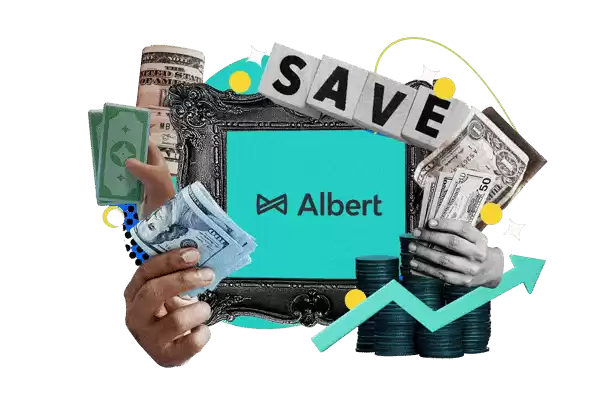Cap? Check. Gown? Check. Diploma? Check. Plan for paying off your student loans? Wait, what?
Student loans are an especially intimidating source of debt. When you embarked on your collegiate journey, your student loans represented something that was coming “someday” –– something you just did not need to worry about in the present moment.
But suddenly, that day has arrived, and you might be totally panicking, and for good reason. This generation has more student loan debt than any other before it, with national student debt totaling roughly 1.3 trillion dollars. That amount is enough to strike fear into the hearts of even the bravest post-graduates.
Arming yourself with knowledge will help you prepare to pay off your student loans with confidence and pragmatism. Below, check out our tips for dealing with student debt. Think of it as Student Loans 101.
Step 1: Create an Action Plan
The first step to dealing with your student loans is to gather all the information and formulate a plan.
Figure out when you need to start paying off your loans –– typically six months after you have graduated. If you do not already know, find out exactly how much you owe.
Interest can accrue on student loans even while you are in school, so it is likely that this amount is greater than you remember it being. Interest rates on student loans tend to be fairly high, so this number will also affect how much you need to pay each month to make a dent.
Luckily, your loan payback homepage can help you calculate how much you need to pay monthly over a 30 year period.
When you gather all the loan information, use your monthly income and any savings to figure out what you can afford to pay each month. Be sure to factor in your guaranteed monthly expenses, like groceries, rent, and utilities.
And while it may seem lofty, you should also set aside a chunk each month to go to savings (consider opening a separate savings account for this). You might think saving is a stretch when there are loans to pay off, but your 30 year-old self will thank you when they start thinking about purchasing a home.
It might be helpful to set some financial goals to keep you motivated on your money-saving journey.
Once you have every dollar accounted for, make a budget or use budgeting tools. This budget will be the cornerstone of your financial future. The hardest part? Sticking to it.
Step 2: Stick to your Budget
There is nothing more important than sticking to your budget. Hopefully, you have set aside a little money to have fun every month, but try your hardest not to exceed that amount.
Look for budget options when grocery shopping, and keep eating out to a minimum. Especially if you just started a new job, you will see that your new income will accrue much faster if you keep spending to a minimum every month. Ultimately, the rewards of being frugal will benefit you more than those tempting impulse purchases.
While you may feel like self-inflicted financial constraints make you boring and old, they will make you a lot more comfortable when you actually become boring and old down the road and are debt-free.
Step 3: Make Extra Payments When Possible
If you get a big bonus at work or a generous Christmas cash gift from mom and dad, consider putting it towards your student loan debt.
Remember, the lower the number in your debt account, the slower the interest accrues.
Any large chunk you can put towards your loans will go a long way towards relieving debt-related stress. You can also pay off your debt using debt payoff apps like ChangEd.
ChangEd gives borrowers the ability to link all of their loans and builds a repayment journey that aligns with any budget. This app will help you save in small increments and automate those savings toward your debt regularly to help borrowers save in interest and become debt free sooner.
ChangEd, a Shark Tank and Mark Cuban backed app, is an app that allows you to link all of your student loans into one easy to use app. This app will help you build a repayment path that’s budget friendly and will automate extra savings it finds toward your debt.
It’s helped thousands of borrowers pay off over $20 Million in debt, saving the average borrower thousands in interest costs and helping them pay it off years sooner. If you’re interested, you can sign up for more information from them here.
ChangeEd collects your spare change to pay off your student loans. You can easily save money, save time, and manage all of your loans in one place with ChangEd.
Step 4: Do Not Forget to Have a Life
Pinching pennies can be rough. Even though you need to save as much as possible, make sure you devote some funds to having fun.
There are lots of ways to have fun on a budget. Look for free things to do in your city. Parks, libraries, and museums often offer free events.
If you are still living in the town where you graduated, check out your alumni association for meet-ups across the city. With a little creativity, you can still have fun while paying off your student loans.
Student loans are intimidating, but paying them off is not an impossible mission. With patience and diligence, you can reach your goal of being debt free while saving for your future and still having a life.
If you are overwhelmed by student debt and your credit score is being impacted, there is help available to you against your battle against student debt when you learn how to improve your credit score.
Additionally, did you know you can even start a business while having student loan debt?
- Get spotted up to $250 without fees
- Join 10+ million people using the finance super app
- Banking with instant discounts on gas, food delivery, groceries and more
- Start investing, saving, and budgeting for free










